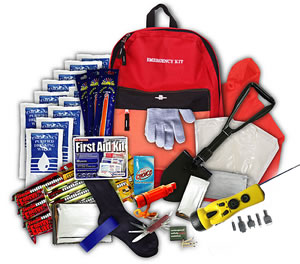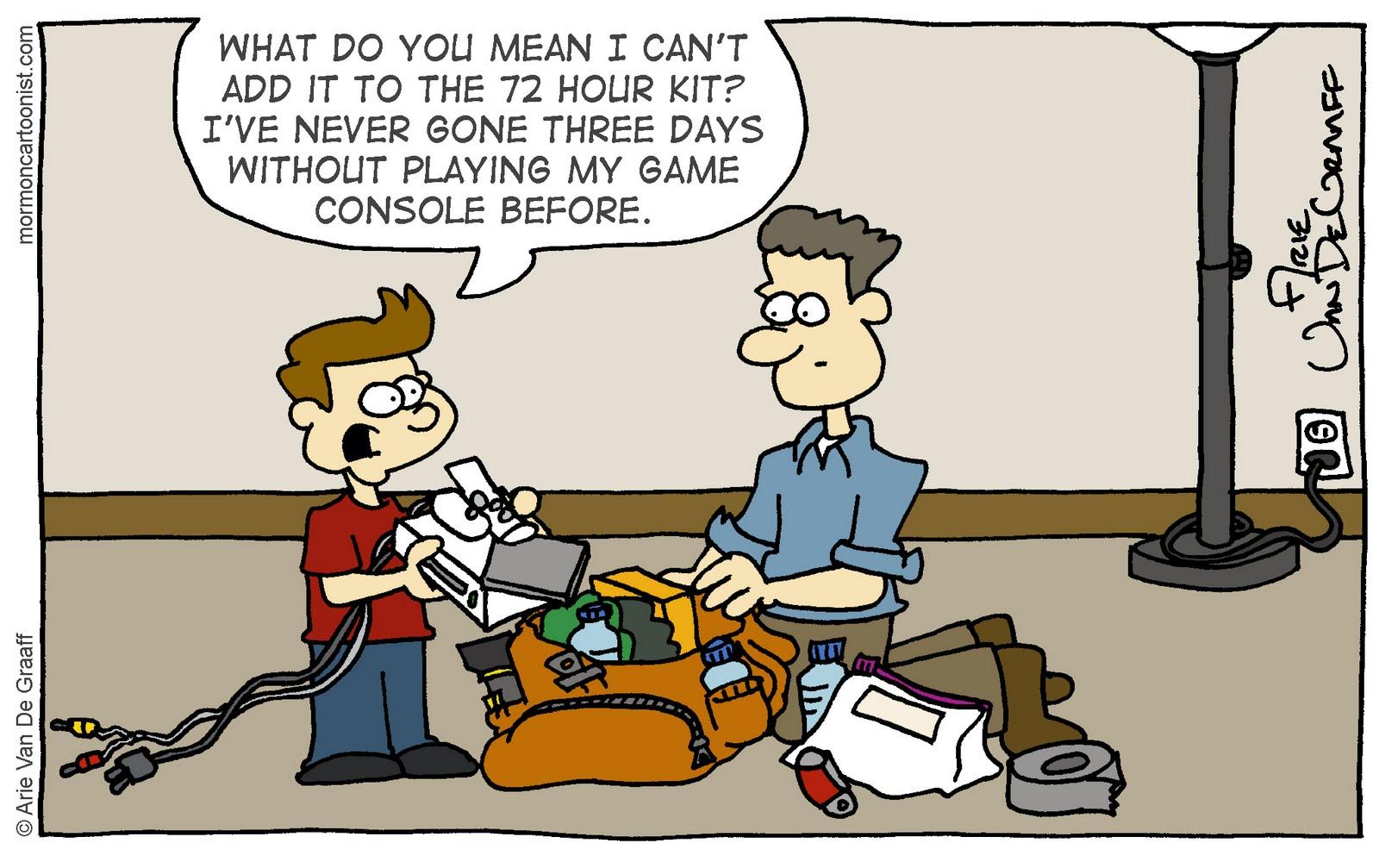
With the Hurricane Sandy aftermath and more harsh winter weather in the near future, it’s time to start using our heads and thinking further ahead. A smart idea would be to make a 24-72-hour kit for moments of emergency. You never know when your life, health, or that of those around you might be in danger and being prepared will help you face whatever may come.
“I didn’t realize how much I needed to stock up on and only went to 7-11 and bought a few water bottles,” said freshman nursing major Jasmine Rivera. “I was lucky my dorm had running water because I am from Staten Island and my family had to evacuate because we had nothing stored and our house is completely flooded.”
Food and water are some of the most important items that you can have in the pack. Items for this should include at least three days worth of water, as the human body can die from lack of water in only three days. Also, make sure to pack water purifiers; in case you run out of water you can refill and treat the water for any harmful bacteria and pathogens that it may contain. Usually a gallon is enough to last one person for three days.

Food will need to be non-perishable. This should include: granola, protein bars, trail mix, dried fruit, crackers, and cereal; canned meats like tuna, Vienna sausages, or SPAM (beware of any pop-top cans – they can leak or explode and ruin other foods); and canned juice.
Next to food the next thing on your list should be personal supplies and medicine. These are the things that have to be checked and switched out every three months to make sure that they are not expired.
This category includes: first Aid supplies such as small first aid kits, which can be bought at any local store or pharmacy or you can always make one yourself; toiletries such as toilet paper, feminine hygiene products, folding brush, etc. (if you remove the cardboard from the middle of the toilet paper it will fold easier); personal hygiene supplies like shampoo, soap, and hand sanitizer; medications such as acetaminophen, ibuprofen, etc.; and personal prescription medicine.
Next in your survival kit should be bedding and clothing. These items need to be switched out with every changing of the season, so every four to six months. Since you never know when a disaster will hit, you must be prepared with the appropriate clothing.
No matter what weather make sure to include: poncho/rain coat, emergency heat blankets , and cloth and plastic sheets.
Other miscellaneous items that you are going to need for your 72-hour kit no matter where you may live are: batteries, flashlights, flares, candles, water-proof matches, can opener, dishes, utensils, small foldable shovel, windup or battery-operated radio, pen and paper, small axe, pocketknife, rope, and duct tape (duct tape fixes everything), copies of legal documents such as birth certificates, wills, passports, contacts, vaccination and immunization records, insurance policies, credit cards, cash, and pre-paid phone cards, all to be sealed in waterproof bags for safe keeping.
All of the items in the 72-hour kit need to be kept in plastic sealable bags in case of leakage or contamination of other products. Nothing is worse than making a kit just to find that it is useless when you need it.
Some of these items may seem a little unnecessary to many, so you can always shorten the amount of items that you may see on this list to make a 24-hour kit instead. Just remember that each item is important and will be of use to you.
The most important item of all is going to be the bag that you store all of this in. Hiking bags and large duffle bags are the best because they can hold the weight and are easy to carry around.



